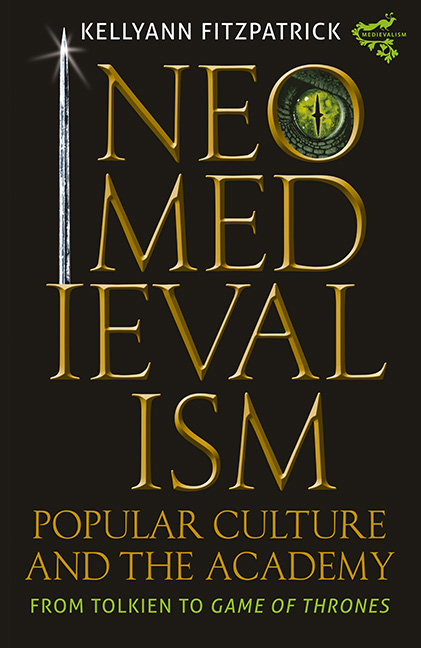2 - Tolkien: From Medieval Studies to Medievalist Fantasy
Published online by Cambridge University Press: 21 March 2020
Summary
AN INFORMAL discussion among twenty-first-century academics in the field of Anglo-Saxon, or Old English, studies revealed that almost half of them found their path to medieval studies through the writing of J. R. R. Tolkien. Tolkien was himself a prominent philologist and Anglo-Saxon scholar who served, among other professional roles, as Rawlinson and Bosworth Professor of Anglo-Saxon at the University of Oxford. With such a scholarly pedigree, one might expect that Tolkien’s draw to potential medievalists would be purely academic, and indeed some Anglo-Saxonists cite Tolkien's scholarly work as the impetus for their choice of career. It is “early exposure” to Tolkien's fictional work, however, that is specifically credited as having lured so many Anglo-Saxonists to their current vocation. This is not surprising, as “Middle-earth,” the fantastic world Tolkien constructs in The Lord of the Rings, The Hobbit, and The Silmarillion, has long been acknowledged as reflecting Tolkien's interest and professional training in the languages, literature, and culture of the European Middle Ages. At the same time, Tolkien's fiction is also read as firmly rooted in the events of the twentieth century. The Tolkien scholar Tom Shippey, for instance, locates Tolkien among a group of what he calls “‘traumatised authors’, writing fantasy, but voicing in that fantasy the most pressing and immediately relevant issues of the whole monstrous twentieth century – questions of industrialised warfare, the origin of evil, the nature of humanity.” Tolkien's medievalism, then, while shaped very much by his professional understanding of the Middle Ages, can also be seen as a means of critiquing the time and place in which he wrote.
As many Anglo-Saxonists have found their way to the Middle Ages through Tolkien's fantasy, Tolkien arguably found his way to them through William Morris, one of the best-known figures of the later part of the nineteenth-century British medieval revival. In what has become an oft-cited part of Tolkien lore, Tolkien biographer Humphrey Carpenter heralds Andrew Lang's Red Fairy Book, with its condensed version of William Morris's translation of the Völsunga Saga,9 as the impetus for
- Type
- Chapter
- Information
- Neomedievalism, Popular Culture, and the AcademyFrom Tolkien to Game of Thrones, pp. 31 - 70Publisher: Boydell & BrewerPrint publication year: 2019



